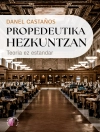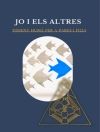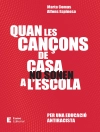This Handbook provides a systematic and analytical approach to the various dimensions of international, ethnic and domestic conflict over the uses of national history in education since the end of the Cold War. With an upsurge in political, social and cultural upheaval, particularly since the fall of state socialism in Europe, the importance of history textbooks and curricula as tools for influencing the outlooks of entire generations is thrown into sharp relief. Using case studies from 58 countries, this book explores how history education has had the potential to shape political allegiances and collective identities. The contributors highlight the key issues over which conflict has emerged – including the legacies of socialism and communism, war, dictatorships and genocide – issues which frequently point to tensions between adhering to and challenging the idea of a cohesive national identity and historical narrative.
Global in scope, the Handbook will appeal to a diverse academic audience, including historians, political scientists, educationists, psychologists, sociologists and scholars working in the field of cultural and media studies.
Tabla de materias
Chapter 1. Introduction: History Education Conflicts around the World: Backgrounds, Settings, Foci; Luigi Cajani, Simone Lässig, Maria Repoussi.- Chapter 2. Argentina; Gonzalo de Amézola.- Chapter 3. Armenia; Philip Gamaghelyan.- Chapter 4. Australia; Ann Clark.- Chapter 5. Azerbaijan; Sergey Rumyansev.- Chapter 6. Belgium; Tessa Lobbes and Kaat Wils.- Chapter 7. Bosnia and Herzegovina; Katarina Batarilo-Henschen.- Chapter 8. Bulgaria; Krassimira Daskalova.- Chapter 9. Burundi; Denise Bentrovato.- Chapter 10. Canada; Christian Laville.- Chapter 11. Caribbean; John Hamer.- Chapter 12. Chile; Rodrigo Henríquez.- Chapter 13. China; Biao Yang.- Chapter 14. Croatia; Snježana Koren.- Chapter 15. Cyprus; Eleftherios Klerides.- Chapter 16. Czech Republic; Antonie Doležalová.- Chapter 17. France; Marcus Otto.- Chapter 18. Georgia; Nino Chikovani.- Chapter 19. Federal Republic of Germany; Falk Pingel.- Chapter 20. Greece; Hercules (Iraklis) Millas.- Chapter 21. India; Michael Gottlob.- Chapter 22. Iceland; Thornsteinn Helgason.- Chapter 23. Israel; Eyal Naveh.- Chapter 24. Italy; Luigi Cajani.- Chapter 25. Japan; Sven Saaler.- Chapter 26. Latvia; Daina Bleiere.- Chapter 27. Lebanon; Nemer Frayha.- Chapter 28. Malaysia; Helen Ting Mu Hung.- Chapter 29. Republic of Moldova; Stefan Ihrig.- Chapter 30. The Netherlands; Maria Grever.- Chapter 31. New Zealand; Mark Sheehan.- Chapter 32. Northern Cyprus; Hakan Karahasan and Mehveş Beyidoğlu.- Chapter 33. Northern Ireland; Alan Mc Cully.- Chapter 34. Norway; Bente Aamotsbakken.- Chapter 35. Pakistan; M. Ayaz Naseem.- Chapter 36. Palestine; Samira Alayan.- Chapter 37. Poland; Joanna Wojdon.- Chapter 38. Romania; Mirela-Luminița Murgescu.- Chapter 39. Russia; Victor A. Šnirel’man.- Chapter 40. Rwanda; Denise Bentrovato.- Chapter 41. Senegal; Ibrahima Seck.- Chapter 42. Serbia; Marko Šuica.- Chapter 43. Slovakia; Slávka Otčenášová.- Chapter 44. Slovenia; Vilma Brodnik.- Chapter 45. South Africa; Johan Wassermann.- Chapter 46. Spain; Rafael Valls-Montes and Ramón López-Facal.- Chapter 47. Sudan; Julia Nohn.- Chapter 48. Sweden; Björn Norlin and Daniel Lindmark.- Chapter 49. Switzerland; Markus Furrer.- Chapter 50. Taiwan; Wei-chih Liou.- Chapter 51. Tatarstan; Marat Gibatdinov.- Chapter 52. Turkey; Büşra Ersanlı.- Chapter 53. Ukraine; Polina Verbystka.- Chapter 54. United Kingdom; Terry Haydn.- Chapter 55. United States of America; Gary B. Nash and Ross E. Dunn.- Chapter 56. Venezuela; Tulio Ramírez.- Chapter 57. Zimbabwe; Marshall Tamuka Maposa.
Sobre el autor
Luigi Cajani has taught Early Modern History and History Didactics at the Facoltà di Lettere e Filosofia at the Sapienza University of Rome, Italy. He is also an Associated Scholar of the Georg Eckert Institute for International Textbook Research in Braunschweig, Germany. His research interests include the history of historiography, history didactics and the political use of history.
Simone Lässig is Professor of Modern History at the University of Braunschweig, Germany, and Director of the German Historical Institute, USA, a position she has held since 2015. Her main areas of research concern modern Jewish and European history, the history of knowledge, textbook research, and history politics.
Maria Repoussi is Professor of History and History Education at the Aristotle University of Thessaloniki, Greece. Her main research interests are the history of history education, the controversies surrounding school history, gender in history education, and history textbooks.












